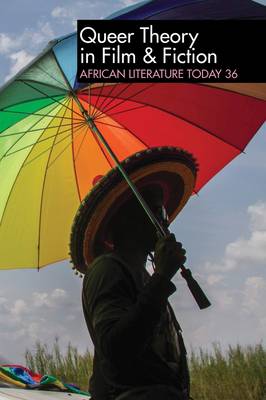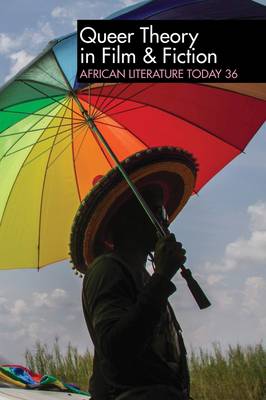
Bedankt voor het vertrouwen het afgelopen jaar! Om jou te bedanken bieden we GRATIS verzending aan op alles gedurende de hele maand januari.
- Afhalen na 1 uur in een winkel met voorraad
- Gratis thuislevering in België
- Ruim aanbod met 7 miljoen producten
Bedankt voor het vertrouwen het afgelopen jaar! Om jou te bedanken bieden we GRATIS verzending aan op alles gedurende de hele maand januari.
- Afhalen na 1 uur in een winkel met voorraad
- Gratis thuislevering in België
- Ruim aanbod met 7 miljoen producten
Zoeken
€ 209,45
+ 418 punten
Omschrijving
ALT 36 turns a "queer eye" on Africa, offering provocative (re-)readings of texts to position formerly erased sexualities and contemporary sexual expression among Africans on the continent, and abroad. Debates on the future of the African continent and the role of gender identities in these visions are increasingly present in literary criticism forums as African writers become bolder in exploring the challenges they face and celebrating gender diversity in the writing of short stories, novels, poetry, plays and films. Controversies over the rights of Lesbian, Gay, Bisexual, Trans, Intersex, Queer (LGBTIQ) communities in Africa, as elsewhere, continue inthe context of criminalization and/or intimidation of these groups. Residual colonial moralizing and contemporary western identity norms and politics vie with longstanding polyvalent indigenous sexual expression. In addition to traditional media, the new social media have gained importance, both as sources of information exchange and as sites of virtual construction of gender identities. As with many such contentious issues, the variety of responses to the"state of the question" is strikingly visible across the continent. In this issue of ALT, guest editor John Hawley has sampled the ongoing conversations, in both African writing and in the analysis of contemporary African cinema, to show how queer studies can break with old concepts and theories and point the way to new gender perspectives on literary and cinematic output. This volume also includes a non-themed section of Featured Articles anda Literary Supplement. Guest Editor: John C. Hawley is Professor in the Department of English, Santa Clara University
Series Editor: Ernest N. Emenyonu is Professor of Africana Studies at the University of Michigan-Flint, USA.
Reviews Editor: Obi Nwakanma
Series Editor: Ernest N. Emenyonu is Professor of Africana Studies at the University of Michigan-Flint, USA.
Reviews Editor: Obi Nwakanma
Specificaties
Betrokkenen
- Auteur(s):
- Uitgeverij:
Inhoud
- Aantal bladzijden:
- 295
- Taal:
- Engels
- Reeks:
- Reeksnummer:
- nr. 36
Eigenschappen
- Productcode (EAN):
- 9781847011848
- Verschijningsdatum:
- 16/11/2018
- Uitvoering:
- Hardcover
- Formaat:
- Genaaid
- Afmetingen:
- 140 mm x 216 mm
- Gewicht:
- 489 g

Alleen bij Standaard Boekhandel
+ 418 punten op je klantenkaart van Standaard Boekhandel
Beoordelingen
We publiceren alleen reviews die voldoen aan de voorwaarden voor reviews. Bekijk onze voorwaarden voor reviews.












